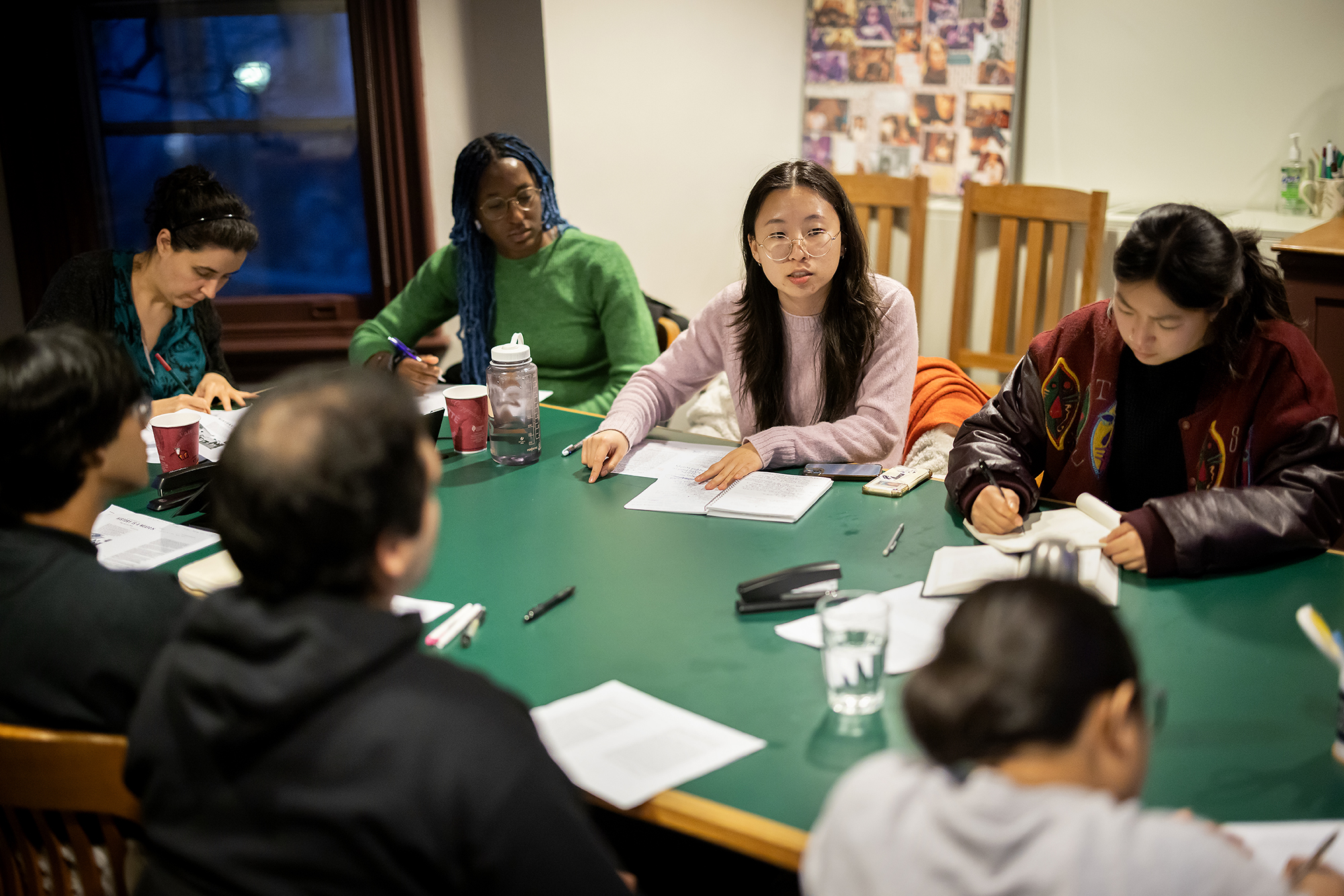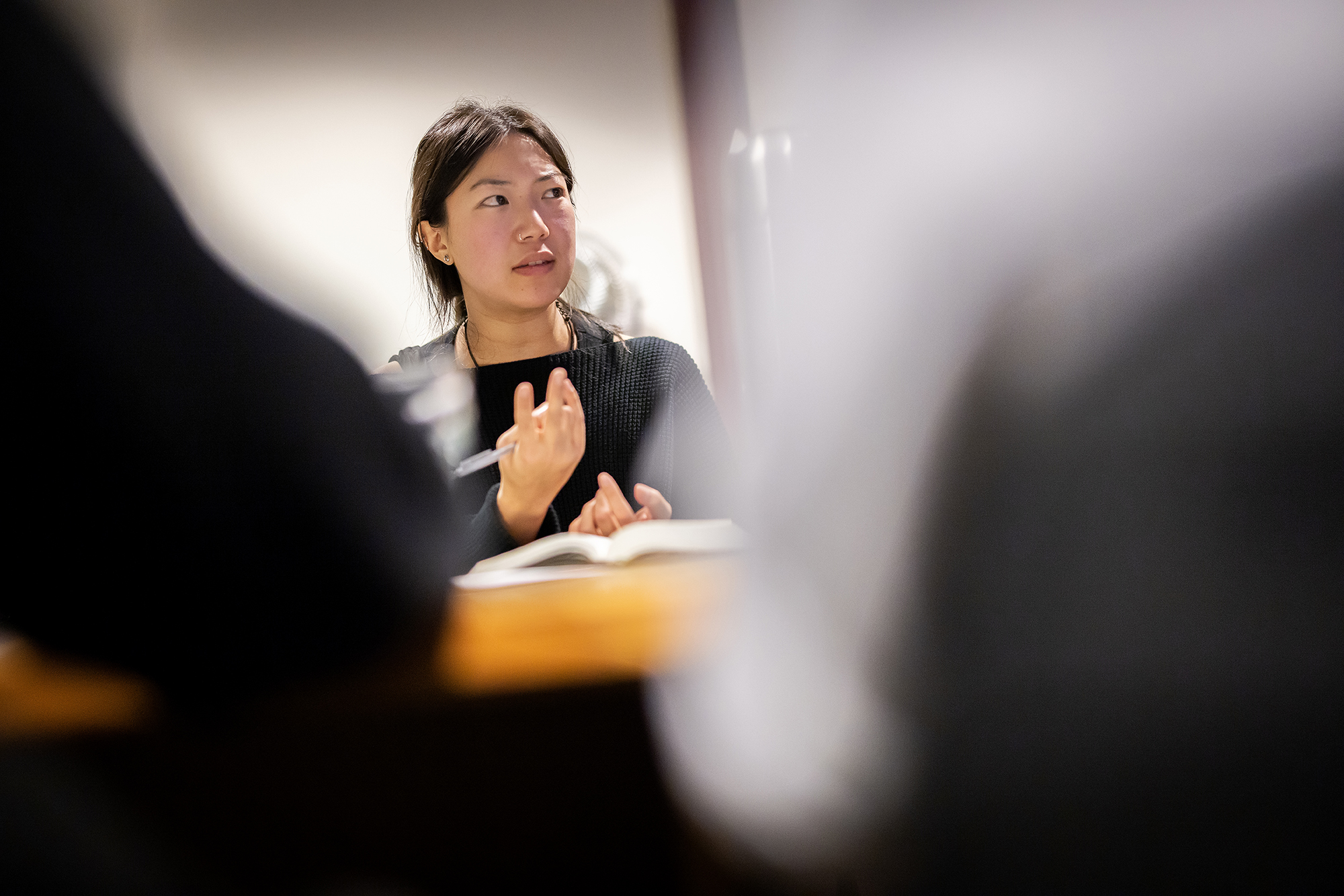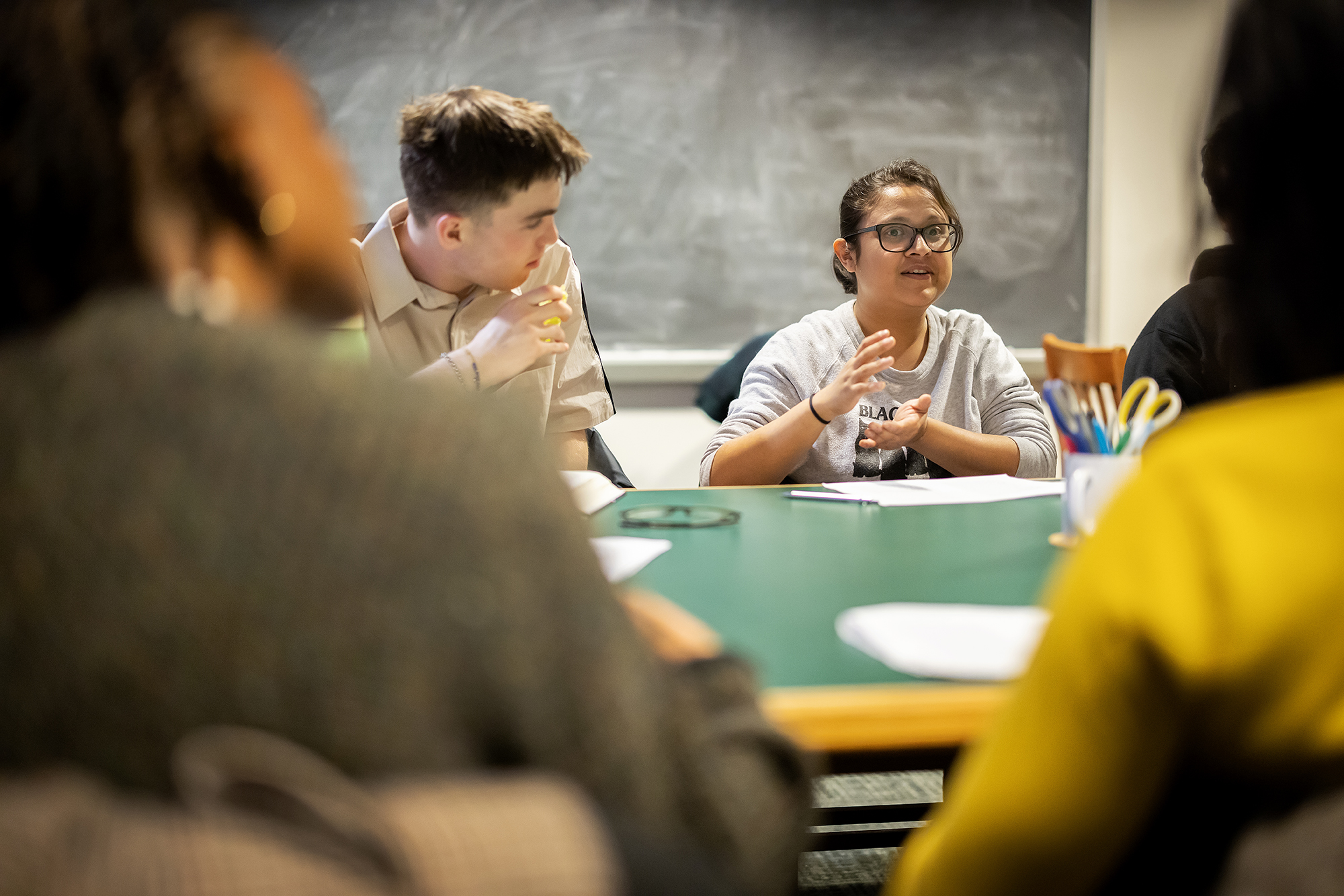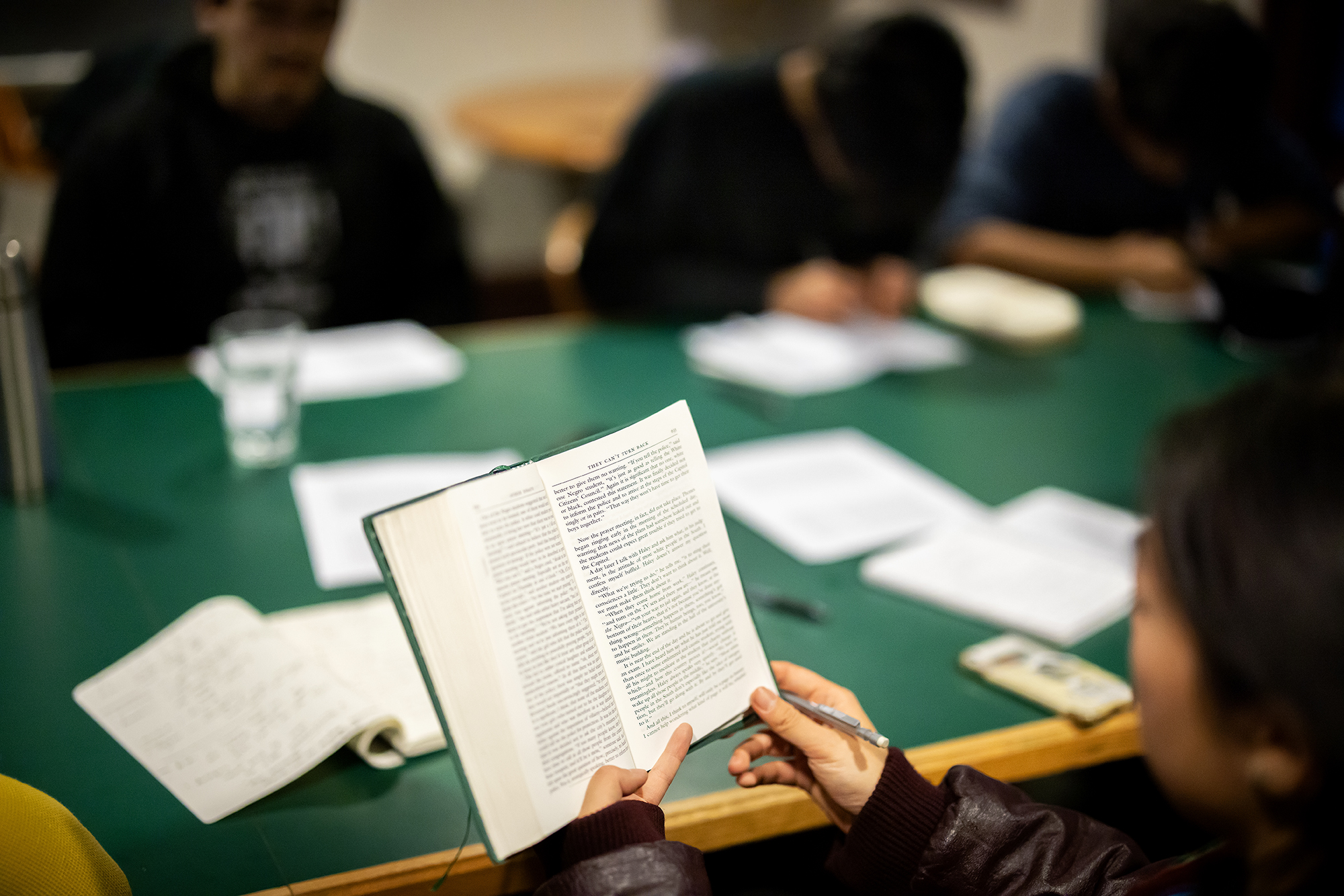
Born Aug. 2, 1924, in Harlem, New York, James Baldwin’s forthcoming birthday will be his 100th. The activist, scholar, orator, and writer extraordinaire is being feted by a yearlong citywide celebration, including readings and documentaries at Penn.
Nearly every Monday evening since the start of the fall semester, the Lotus Collective, a campus activist organization, has been hosting readings, discussions, and screenings at Kelly Writers House honoring Baldwin’s life and work. They began in September with essays from Baldwin’s acclaimed “The Fire Next Time.” In January, readings commenced with his instructive “A Talk to Teachers.”
Michelle Lyu, a Lotus member and 2019 alum of the Wharton School, says the group chose to highlight Baldwin this year in order to be a part of the collective consciousness uplifting his work, and to examine what his ideas mean at this moment in world history.
“I think Baldwin is a unique thinker for students and young people because anyone who has had exposure to Baldwin, most of them share this experience that Baldwin is undeniably an arresting writer because he’s able to pierce into who you are and the assumptions you have, especially as an American,” she says, “as someone who has inherited American history, imbibed it in your life.”
Nuri Yi, a Lotus member and second-year grad student in the Department of Biology in the School of Arts & Sciences (SAS), says the organization also wanted to showcase Baldwin because of his consistent engagement and ongoing conversations he had with young people.
“Baldwin had always written a lot to the youth,” she says. “We started off reading, ‘A Letter to My Nephew.’ He covered the student movements of the Civil Rights Movement in the South a lot, and it was always a great concern of his. Especially near the end of his life, I feel like the question of youth and the new generation weighed a lot on him.”
The Monday Baldwin readings from 5:30 to 7 p.m. at Writers House are open to the general public. Yi says one of the reasons they pursued Writers House as the venue was because it “genuinely prides itself and sees itself as being an open place for Penn students and the public, Penn and Philadelphia.”
Lyu says most of the attendees—a racially mixed group with a large Asian population—are first-year and second-year undergraduates.
Jennie Fan, a Lotus member and first-year undeclared student, says Baldwin came to her right when she really needed him. She says “the honesty with which he approaches his writing” has helped her make sense of the complex, ever-changing, and at times unjust world, and provides an alternative to the typical do-this-if-you-want-to-be-rich-and-successful refrain in academia.
“One of the things that struck me most during one of our meetings was an essay Baldwin wrote where he was talking about instead of letting the world make you become jaded or lose hope, the only thing you can really do is embrace life with the knowledge that it’s only through hope, and kindness, and love that you can really make change,” she says. “I think that really helped.”
Fan says she read a few of Baldwin’s essays in high school, but the experience of reading him in a dedicated space at Writers House is “powerful” and “different from anything I could have expected.”
The Lotus Collective, its members say, is explicitly anchored in the study of the Black radical tradition, which, in addition to Baldwin, includes the contributions of monumental figures like Martin Luther, King, Jr., and W.E.B. Du Bois, in the same way that late Asian American activist Grace Lee Boggs rooted herself in the Black radical tradition.
Purba Chatterjee, a Lotus member and postdoctoral researcher in the Department of Physics and Astronomy in SAS, says the tradition provides a framework for young people, especially at Penn, to think for themselves about questions of right and wrong, find their place in the world, and lessons on how to move about in the world in a more modern way.
“We really feel like Baldwin’s ideas speak to this moment very clearly and have lessons for us to understand what’s going on with the world and respond to it as people who have a contribution to make in this moment,” she says.










